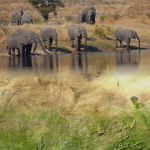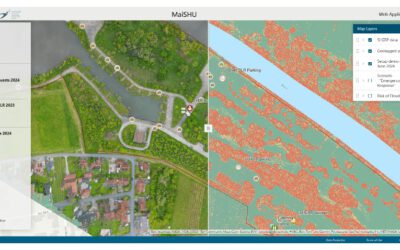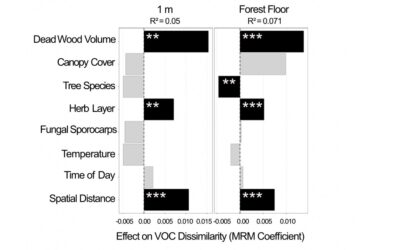Based on a workshop we had last year in the US, organized by WCS, Robert Rose and funded by NASA we developed the most important ten ways remote sensing can contribute to conservation success. These approaches were developed out of 200+ submitted ideas and discussed by the workshop participants. The article gives a very good overview how remote sensing can help conservation.
In an effort to increase conservation effectiveness through the use of Earth observation technologies, a group of remote sensing scientists affiliated with government and academic institutions and conservation organizations identified 10 questions in conservation for which the potential to be answered would be greatly increased by use of remotely sensed data and analyses of those data. Our goals were to increase conservation practitioners’ use of remote sensing to support their work, increase collaboration between the conservation science and remote sensing communities, identify and develop new and innovative uses of remote sensing for advancing conservation science, provide guidance to space agencies on how future satellite missions can support conservation science, and generate support from the public and private sector in the use of remote sensing data to address the 10 conservation questions. We identified a broad initial list of questions on the basis of an email chain-referral survey. We then used a workshop-based iterative and collaborative approach to whittle the list down to these final questions (which represent 10 major themes in conservation): How can global Earth observation data be used to model species distributions and abundances? How can remote sensing improve the understanding of animal movements? How can remotely sensed ecosystem variables be used to understand, monitor, and predict ecosystem response and resilience to multiple stressors? How can remote sensing be used to monitor the effects of climate on ecosystems? How can near real-time ecosystem monitoring catalyze threat reduction, governance and regulation compliance, and resource management decisions? How can remote sensing inform configuration of protected area networks at spatial extents relevant to populations of target species and ecosystem services? How can remote sensing-derived products be used to value and monitor changes in ecosystem services? How can remote sensing be used to monitor and evaluate the effectiveness of conservation efforts? How does the expansion and intensification of agriculture and aquaculture alter ecosystems and the services they provide? How can remote sensing be used to determine the degree to which ecosystems are being disturbed or degraded and the effects of these changes on species and ecosystem functions?









